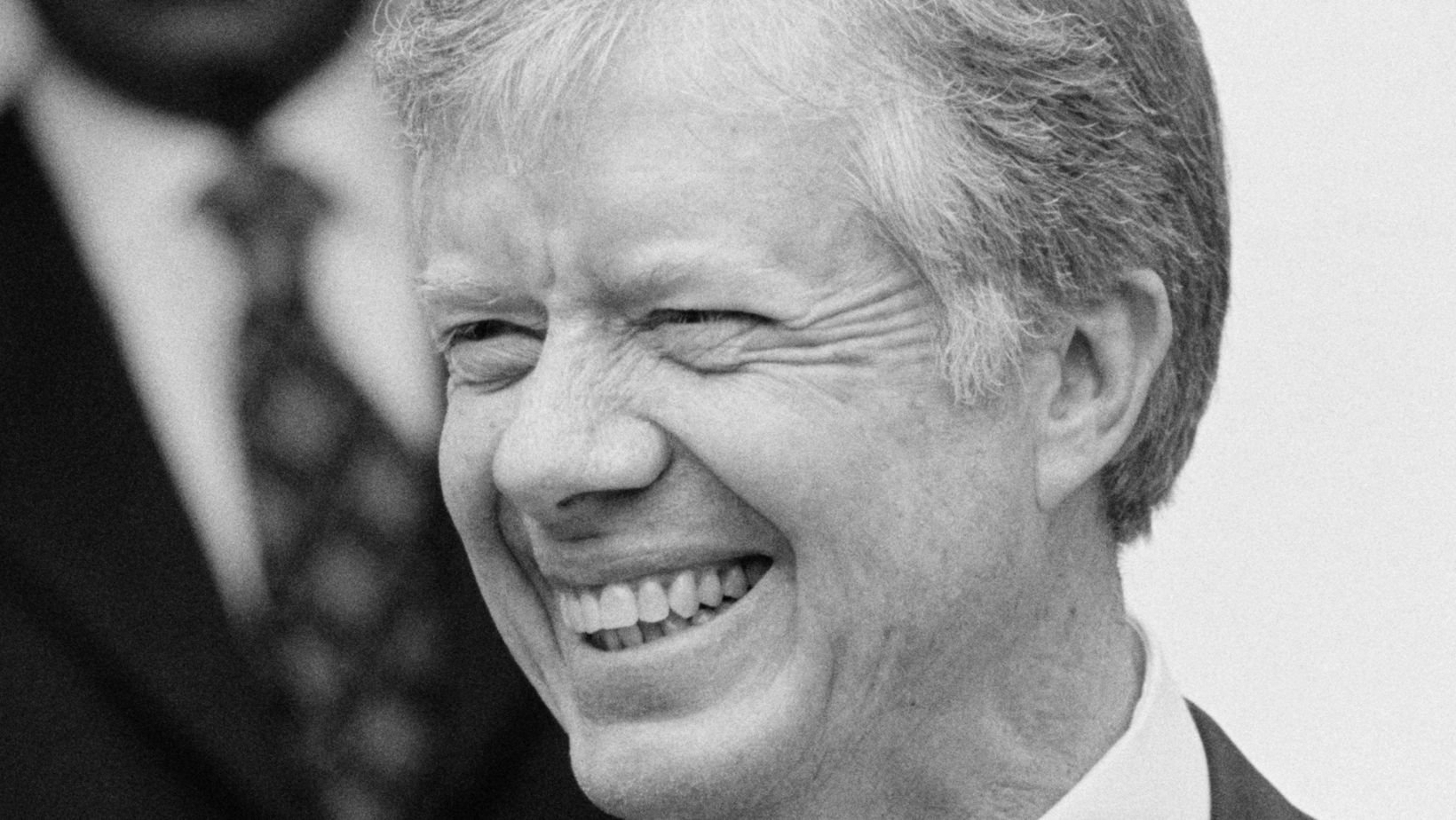Jimmy Carter: A President Ahead of His Time in Environmental Stewardship.
James Earl Carter Jr., who served as the 39th president of the United States from 1977 to 1981, passed away December 29th, 2024 at the age of 100.
Leading with Integrity: The Visionary Who Transformed the Trajectory of America’s Environmental Future.
By Jim Burness, CEO & Founder of National Car Charging
When Jimmy Carter entered the White House in 1977, the United States was grappling with energy crises and increasing awareness of environmental challenges. While his presidency is often remembered for its emphasis on human rights and diplomacy, Carter’s forward-thinking environmental policies and advocacy laid a foundation for modern sustainability efforts. As one of the first presidents to prioritize environmental issues on the national stage, his legacy serves as a reminder of the importance of leadership in protecting our planet.
A Vision for Renewable Energy.
In the face of the 1970s energy crisis, Carter recognized America’s dependence on fossil fuels was unsustainable. His administration invested heavily in renewable energy research, advocating for solar, wind, and other clean energy alternatives. Carter famously installed 32 solar panels on the White House roof in 1979, symbolizing his commitment to renewable energy and energy independence. Although these panels were removed during subsequent administrations, they remain an enduring symbol of Carter’s environmental foresight.
Carter also championed the creation of the Department of Energy in 1977, centralizing efforts to address energy consumption and efficiency. Under his leadership, the National Energy Act of 1978 was passed, which encouraged energy conservation and the development of alternative energy sources through tax incentives and regulations.
Protecting Natural Resources.
Carter’s environmental legacy includes safeguarding vast stretches of America’s wilderness. He signed the Alaska National Interest Lands Conservation Act (ANILCA) in 1980, protecting over 100 million acres of land—doubling the size of the National Park System. This legislation preserved critical habitats for wildlife and ensured the protection of iconic landscapes like Denali National Park and Wrangell-St. Elias National Park and Preserve.
Additionally, Carter expanded protections for endangered species and enacted measures to prevent harmful activities, such as oil drilling, in sensitive ecosystems. His administration also worked to strengthen the Clean Air Act and Clean Water Act, reinforcing regulatory frameworks that are still in place today.
“[President Carter’s] environmental legacy is a testament to his deep sense of responsibility—not just to the present, but to future generations. His efforts to protect the planet underscore a timeless truth: true leadership is measured not by short-term gains, but by the lasting impact it leaves for those who follow.”
Global Environmental Leadership.
Carter recognized environmental issues extended beyond national borders. He was an early advocate for international cooperation on climate and environmental issues, laying groundwork for global agreements to address pollution and conservation.
His administration played a pivotal role in establishing the Superfund program in 1980, which provided funding to clean up hazardous waste sites. This program demonstrated Carter’s commitment to tackling environmental injustices, ensuring that communities suffering from industrial pollution could seek remediation.
A Legacy of Environmental Advocacy.
Jimmy Carter’s commitment to the environment didn’t end when he left office. Through his post-presidential work, including his involvement with the Carter Center, he has continued to champion environmental causes and sustainable development.
Carter’s presidency marked a turning point in environmental policy, emphasizing the interconnectedness of energy independence, environmental protection, and public health. While some of his initiatives were rolled back in subsequent years, his vision for a greener, more sustainable future remains influential.
Looking Forward.
As we face the intensifying effects of climate change, Carter’s environmental achievements serve as a powerful reminder of the need for bold, visionary leadership. By championing renewable energy, conservation, and environmental justice, Jimmy Carter laid a foundation that continues to inspire policymakers and activists today.
Today, we remember Jimmy Carter, who passed away leaving behind a legacy of integrity, compassion, and an unwavering commitment to the common good. His environmental legacy is a testament to his deep sense of responsibility—not just to the present, but to future generations. His efforts to protect the planet underscore a timeless truth: true leadership is measured not by short-term gains, but by the lasting impact it leaves for those who follow.
As we honor his life and contributions, may we be inspired to continue the work he began, building a sustainable and just future for all.
Download the list of President Jimmy Carter’s environment accomplishments here.
About Jim Burness.
Jim Burness founded National Car Charging (NCC) in 2011 with the belief that business can thrive while doing good for the planet. Eleven years later, NCC and its sister company, Aloha Charge, are collectively the leading reseller and installer of electric vehicle infrastructure in the country and Jim is considered one of the nation’s top EV and charging experts. Based in Denver, Colorado, Jim is actively involved in Colorado’s local sustainability community with Colorado Electric Vehicle Coalition, Colorado’s Solar Energy Industries Association and Clean Energy Action and lends his expertise to the EV Council as part of the NACS Fuels Institute. A graduate of The Colorado College and the University of Denver, he’s previously held positions at J.D. Power, American Honda, and Microsoft’s CarPoint.
About National Car Charging
National Car Charging makes the transition to electric vehicles as easy as possible by offering the most reliable EV charging products and services at reasonable prices. Born in Colorado in 2011, today NCC is the largest independent EV charging reseller nationwide managing 8000+ ports across 48 states, 900 clients and dozens of business channels.





